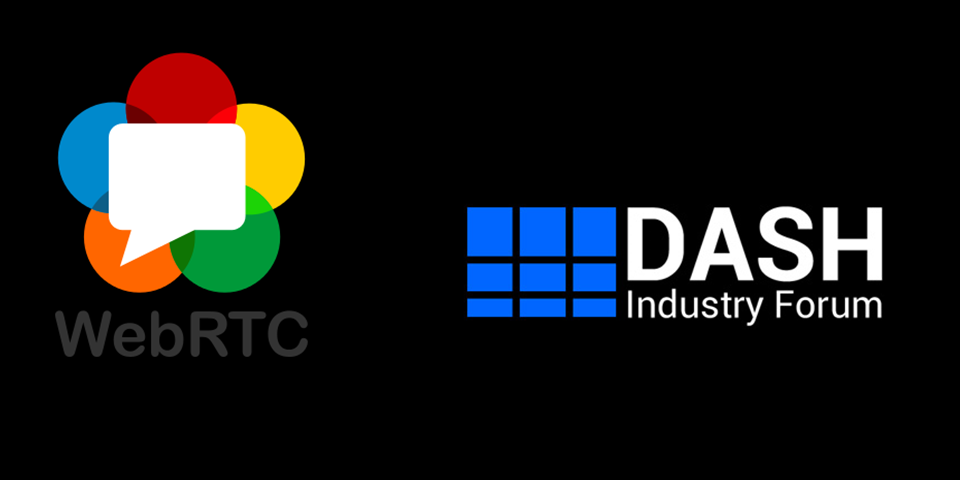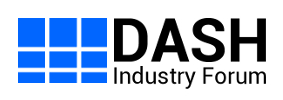DASH-IF publishes first report on WebRTC-based Streaming - Survey open
On March 1st, 2022, DASH-IF published a first report on combining DASH and webRTC-based streaming. This report describes use cases made possible by integrating WebRTC Streaming into the DASH workflows as well as the technical considerations that should be taken into account in order to achieve successful integration. The document is primarily informative and information-collecting. It serves as a preparation and guidance for future technical work in the context of DASH and webRTC-based Streaming. The report was developed by public collabortion under the hospices of DASH-IF in an exploration TF lead by Julia Kenyon and Ali C. Begen. Any comments may be submitted through the github issues. Based on these recommendations, along with the report, DASH-IF also launched a survey on potential next steps - please respond by April 15, 2022.

While DASH-IF is not necessarily the only organization that may take on a coordination role, it may be well suited based on its mission to support deployments, while not creating new specifications and standards (unless identified that no other organization is able to do so). DASH-IF also has a proven history, track record and foundation to support deployments by reference tools, for example DASH-IF test vectors and services, dash.js reference tools and the conformance software. DASH-IF also has regular information exchange with different organizations such as ISO/IEC JTC1 SC29 (MPEG), CTA WAVE, DVB, ATSC, IETF, W3C, HbbTV and 3GPP.
Based on this DASH-IF invites to take on the coordination role for defining a WebRTC based streaming system based on the knowledge from DASH deployments. The focus of the initial effort would be as follows:
- Document deployment and interoperability guidelines for DASH-based WebRTC streaming along the findings in this report, based on existing technologies.
- Identify gaps and optimization potentials for such a system and coordinate with other organizations such as IETF, MPEG, or W3C to address the development of new technologies to address these issues.
- Collect additional use cases and requirements from the industry and other organizations.
- Identify necessities and opportunities to develop reference and test tools to support the above deployments.
This report and the invitation is preferably shared with organizations such as ISO/IEC JTC1 SC29 (MPEG), CTA WAVE, DVB, ATSC, IETF, W3C, HbbTV and 3GPP, also to individual members. In addition, this information should also be shared outside standardization communities, for example on social media, in presentations and blogs. Along with this report and the invitation, feedback from the organizations and individuals should be collected on the above proposed process.
The following timeline is considered:
- Disseminate and share the information from March 1, 2022 onwards and ask for feedback until April 15, 2022.
- Unless the feedback is negative or there are specific concerns, DASH-IF will start a dedicated, members-only activity on this matter by May 1, 2022.
- The primary objective of the initial activity is to deliver interoperability guidelines for DASH-based WebRTC streaming, to be published for community review by the end of 2022 under the DASH-IF publication policy.
Based on these recommendations, along with the report, DASH-IF also launched a survey on potential next steps - please respond by April 15, 2022.
